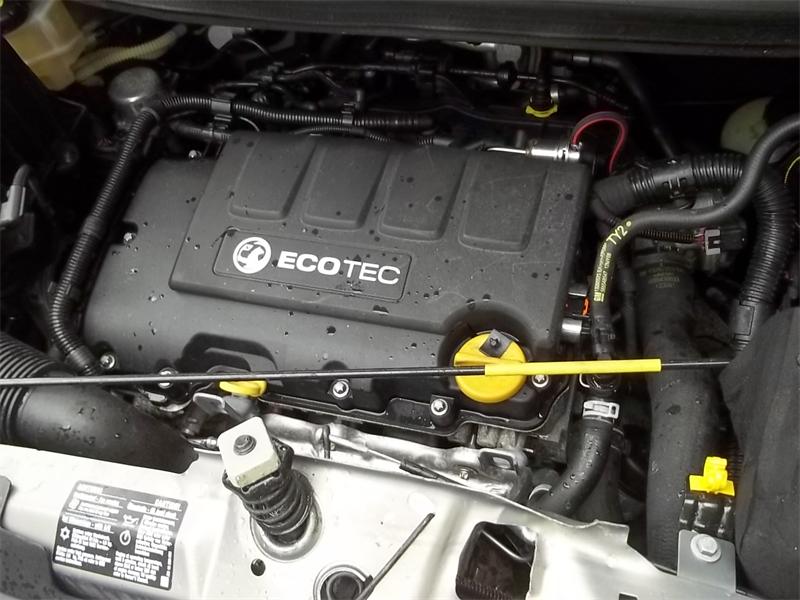Upgrade Your Trip: Opel Corsa 1.4 Engine Price Options Galore at Automobile Components Depot
Upgrade Your Trip: Opel Corsa 1.4 Engine Price Options Galore at Automobile Components Depot
Blog Article
Engine Purchasing Specialist Tips on Choosing the Right Engine for Your Specific Requirements
Picking the appropriate engine for your details demands includes a complex interaction of elements that go beyond plain horsepower numbers. By diving into the details of power versus effectiveness, assessing gas scores, and budgeting for lasting expenses, one can really maximize their engine choice.
Power Vs. Efficiency: Locating the Balance
When picking an engine, it is important to strike an equilibrium between power and performance to satisfy your details requirements effectively. Power describes the engine's ability to generate energy for propulsion, establishing elements like velocity, hauling ability, and overall efficiency - Opel Corsa 1.4 Engine Price. On the other hand, performance associates with how well the engine uses gas to produce power, impacting elements such as fuel economy and environmental kindness
Attaining the best equilibrium in between power and efficiency is essential since an engine that is also powerful may take in too much gas, resulting in higher operating expenses and unneeded pressure on the environment. On the other hand, an engine that focuses on performance over power might lead to slow efficiency, particularly sought after scenarios like towing heavy loads or driving uphill.
To make an educated choice, think about aspects such as your regular driving problems, the designated usage of the automobile, and your individual choices. By evaluating your priorities and requirements, you can choose an engine that strikes the best equilibrium in between power and performance, ensuring optimal performance while lessening environmental influence and operating prices.
Comprehending Engine Dimension and Type
To better refine the choice procedure of an engine that strikes the optimal equilibrium between power and efficiency, it is vital to look into the intricacies of understanding engine dimension and type. Engine size refers to the complete volume of air and fuel that can be pressed via the engine cyndrical tubes. It is usually measured in litres or cubic centimeters. Larger engine dimensions typically lead to more power result yet can also result in reduced fuel performance. On the various other hand, smaller engine dimensions are usually extra fuel-efficient yet may compromise some power.
In addition, engine type plays an important role in establishing the performance characteristics of an engine. Usual engine types consist of inline engines, V engines, and rotary engines, each with its unique benefits and drawbacks. The engine kind affects aspects such as the engine's dimension, weight circulation, and power shipment. Understanding the interaction in between engine dimension and kind is vital in selecting an engine that straightens with your particular demands and priorities, whether it be power, effectiveness, or an equilibrium of both.

Consider Your Car's Requirements
If you are looking for an engine for a sturdy vehicle that will be utilized for towing, you will certainly require an effective engine with high torque capacities. On the other hand, if you are selecting an engine for a small cars and truck mainly utilized for city travelling, gas performance might be an extra critical variable to consider.
If you frequently drive in mountainous or hilly locations, a durable engine with great climbing power will be needed. By aligning the engine specifications with your lorry's demands, you can guarantee that your vehicle runs effectively and meets your efficiency expectations.
Assessing Gas Effectiveness Ratings
Analyzing gas effectiveness rankings is a crucial facet have a peek at this website of selecting the appropriate engine for your automobile, guaranteeing price savings and ecological sustainability. Gas efficiency rankings, normally measured in miles per gallon (MPG) for fuel engines or kilowatt-hours per 100 miles (kWh/100 miles) for electric engines, show just how much a vehicle can take a trip on a specific quantity of gas or electrical energy. Higher MPG or lower kWh/100 miles worths symbolize a lot more efficient engines, equating to reduced fuel prices and lower carbon discharges.
Furthermore, compare various engine alternatives within the same vehicle class to determine the most cost-effective choice. Elements such as engine size, weight, aerodynamics, and hybrid or electric abilities can all affect gas performance.
Budgeting for Long-Term Costs
Strategically intending for long-lasting costs is necessary when choosing an engine, guaranteeing financial sustainability over the automobile's life expectancy. While the initial acquisition price of an engine is a substantial variable, it is vital to think about the lasting expenses associated with upkeep, repairs, and gas consumption.
In addition, researching the availability and expense of replacement components for the chosen engine is crucial in budget plan preparation. By meticulously budgeting for these long-term costs and factoring them right into the decision-making procedure, individuals can pick an engine that not only meets their instant demands but also remains economical throughout its life expectancy.
Verdict
In verdict, picking the ideal engine for your details demands calls for stabilizing power and performance, recognizing engine dimension and kind, considering your automobile's needs, reviewing gas performance rankings, and budgeting for long-lasting expenses. By meticulously taking into consideration these factors, you can ensure that you choose an engine that meets your demands and gives ideal performance for your car.
To further refine the option process of navigate to these guys an engine that strikes the optimal equilibrium between power and performance, it is crucial to dig into the intricacies of recognizing engine size and kind. Engine size refers to the total quantity of air and fuel that can be pressed through the engine cyndrical tubes. Common engine types consist of inline engines, V engines, and browse around here rotary engines, each with its unique benefits and drawbacks. Recognizing the interplay in between engine size and kind is important in selecting an engine that lines up with your specific requirements and priorities, whether it be power, effectiveness, or a balance of both.

Report this page